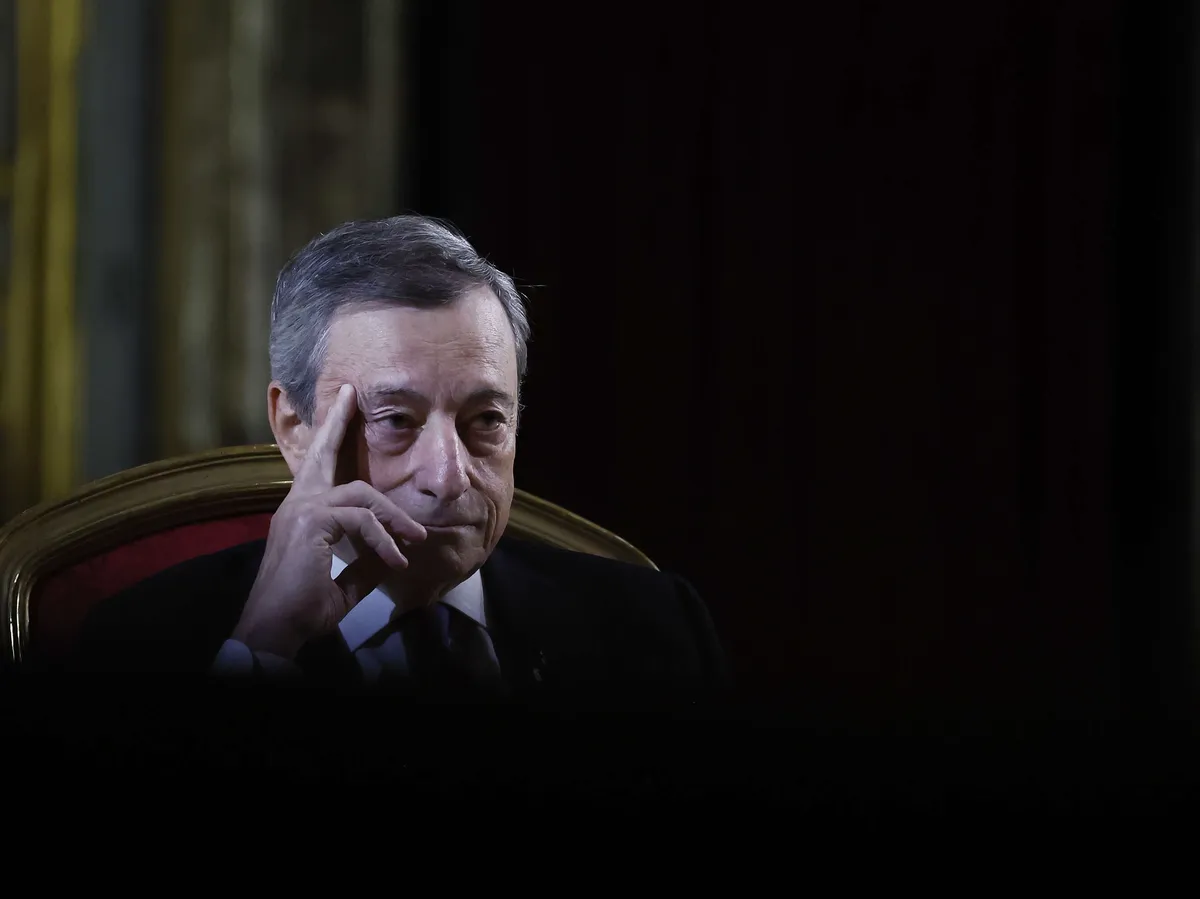Former President of the European Central Bank Mario Draghi presented its long-awaited report on improving EU competitiveness on Monday.
In his report, Draghi presents annual additional investments of 750–800 billion euros in the European economy. Part of the amount would be joint debt.
It’s a huge investment. The program would be larger than Marshall Aid, which was the US program to rebuild Europe after World War II.
Draghi’s program would correspond to more than four percent of the EU’s gross domestic product. Marshall aid investments were 1–2 percent in relation to the EU’s gross domestic product.
“If I had to choose two words to describe the core message of this report, they are urgency and concreteness,” Draghi stated at his press conference in Brussels.
The proposed amount concerns the investments needed to finance the EU’s green transition, technological competitiveness and defence.
“For the first time since the Cold War, we really have to fear for our existence. I am convinced that we will find the strength to reform,” Draghi stated.
How are the investments financed?
In his report, Draghi proposes the issuance of a “common safe asset”. He did not specify what kind of bond this would be. It may be an instrument similar to the envisioned Eurobonds.
According to Draghi, joint debt is needed to finance common European competitiveness projects and to help complete the capital market union.
He stated that the EU needs public money to improve its competitiveness.
“If there is a better financing method than joint debt, which would be politically easier to accept, then why not. Joint debt is not a goal in itself, it is an instrument,” Draghi stated.
President of the European Commission Ursula von der Leyen was cautious about the idea of taking on a new joint debt at the press conference.
He stated that joint European funding is indeed needed to implement European priorities.
“There are two ways to do it. Member countries’ contributions to the EU budget or new own funds. We have to think about both. That requires the political will of the member states.”
Due to the recovery required by the corona pandemic, the EU countries took on a joint debt. However, many member states are skeptical about the idea of a new collective debt. Such countries are, for example, Germany, the Netherlands, Sweden and Finland.
Petteri Orpon (kok) according to the government’s program, the EU budget should not be increased, Finland’s contribution should not increase, and completely new EU-level financial instruments are not needed. The only exception to this could be the reconstruction of Ukraine.
The foundation is shaking
Draghi’s report states that the difference between the gross domestic product of Europe and the United States has grown significantly since the turn of the millennium. It is mainly due to the slowdown in productivity growth in Europe.
For European citizens, this has meant a decrease in the standard of living.
Draghi states that the EU benefited from a favorable environment for a long time. World trade grew when the multilateral system was respected. The security umbrella provided by the US freed EU countries to spend their funds on other priorities instead of defense.
Now the foundation on which the EU’s competitiveness is built is shaking.
Europe has suddenly lost its most important energy supplier, Russia. At the same time, geopolitical stability is weakening, and the EU’s dependency relationships have proven to be its vulnerabilities.
Europe was left out of the digital revolution brought about by the internet. Most of the productivity gap between the EU and the USA arises in the technology sector. Only four of the world’s 50 largest technology companies are European.
In addition to this, the workforce is predicted to decrease by almost two million employees annually by 2040.
According to Draghi, Europe is facing an existential challenge.
“If we can’t be more productive, we have to choose. We cannot be a pioneer of new technologies, a trendsetter in climate change and an independent actor on the world stage at the same time. We are unable to finance our social model,” he writes in his report.
This would mean that the EU would have to withdraw from some, if not all, of its goals.
EU Commission President von der Leyen thanked Draghi for the report and said he agreed with many of its points.
“We need to lower the price of energy, mobilize public and private investments and improve the skills of the workforce.”
THE FACTS
Report by Mario Draghi
A year ago, the president of the European Commission, Ursula von der Leyen, commissioned a report on improving the EU’s competitiveness.
The former President of the ECB, Mario Draghi, states in his report that EU countries should increase investments on an annual basis for 750–800 billion euros.
The investment needs are due to the fight against climate change, the weakening of the EU’s competitiveness and the growth of defense needs.
According to Draghi, the investment needs require a new joint debt.
According to the president of the EU Commission, Ursula von der Leyen, European projects could be financed by increasing the EU budget or acquiring new own funds.
